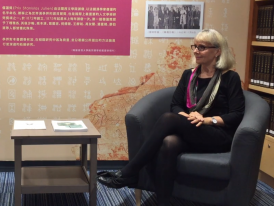
In recent years, many companies have invested in building a flexible and agile workplace in order to boost employee creativity and performance. Professor Xu Huang from the School of Business of Hong Kong Baptist University proposes another way.
According to his research, the key to taking employee creativity to the next level is investing in the well-being of their relationships at home.
The study finds that the strength of the relationship or marriage at home can have a great effect on the creativity of employees - particularly on those who struggle to be creative.
The study looked at how satisfying marriages impact an employee’s “psychological resources” at work - namely their ability to be creative and innovate useful solutions - and showed that:
- Employees satisfied with their marriages experience a positive spillover of psychological resources into their work life
- When an employee’s spouse is also happy with the marriage, this spillover effect is even more pronounced and more powerfully enriches workplace creativity
- Interestingly, this effect applies only to employees who are less creative, as highly creative individuals are less reliant on the boost in resources from a good marriage
- In contrast, marriages with dissatisfied spouses and less intimacy consume the employees’ psychological resources as opposed to boosting them. This indicates that partners can exert a strong influence over an employee’s work performance and that a high-quality marriage is conducive to creativity at work.
As relationships outside of the office may constitute an important source of workplace creativity, it is important to consider these relationships and work-life balance when discussing employee welfare.
Professor Huang proposes employers to deploy family-friendly policies and implement measures to help employees maintain a good relationship with their partner. For example: special marriage anniversary leave, helping facilitate relationship-counselling services, potential managerial interventions that aim at striking a better work-family balance, and prioritise the relationships of less creative employees.
- View article published on Human Resources Online.



